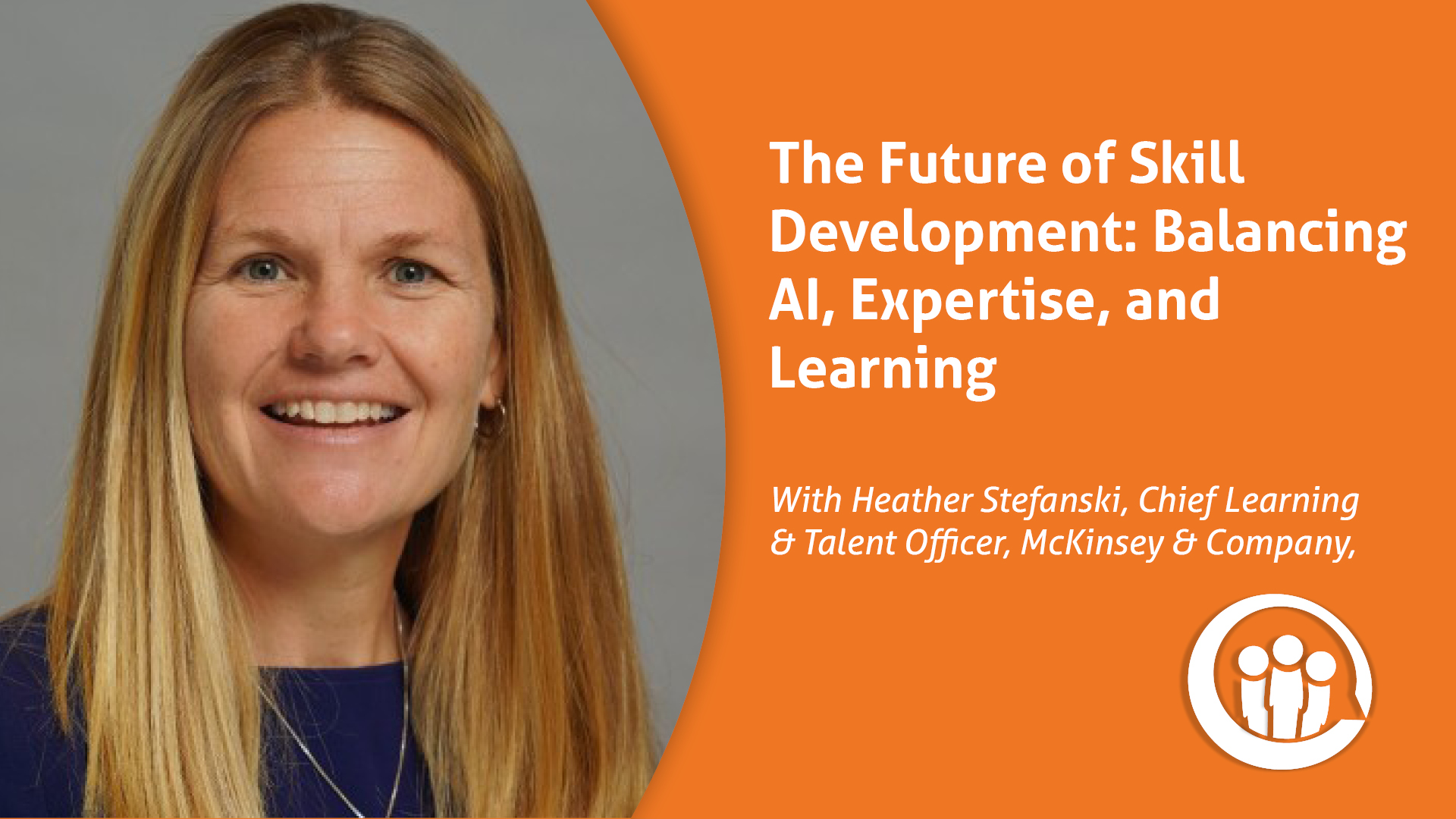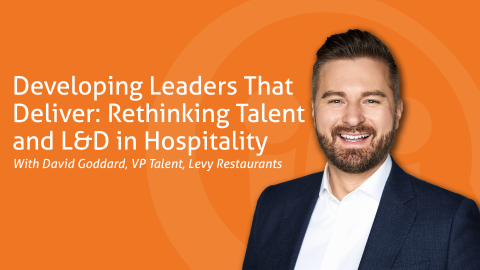Submitted by Kerry Summers on
Updated March 2026
By Kerry Summers (Content Marketing Coordinator, iVentiv)
Key Takeaways
- AI delivers the most value when embedded directly into work
- Apprenticeship must be redesigned for the AI era
- The CLO role is evolving toward “Chief Work Officer”
- Feedback cultures remain essential, even with AI support
- AI will transform L&D operating models and skill requirements
Integrating Learning and Work: Where AI Adds Real Value
Heather tells us that, at McKinsey, AI is no longer an isolated tool; it’s embedded directly into the way work gets done. Tools like "Lilli for PowerPoint" don’t just automate tasks, they coach in real time, transforming slide creation into a learning opportunity.
As Heather put it,
“It’s not autopilot. It’s copilot.”
AI is not replacing human judgment; it is enhancing it. One of McKinsey’s key strategies is using AI to increase practice at scale through simulations, coaching bots, and workflow-integrated learning, all while ensuring cognitive skills aren’t lost.
Heather shared how McKinsey is deconstructing its own problem-solving methodology to determine which tasks AI can take over, and which must remain human-led for developmental reasons:
“We’re identifying those cognitive capabilities that are core to our people’s future growth and designing our tools to preserve and strengthen them.”
Reimagining Apprenticeship in the Age of AI
At the heart of McKinsey’s learning philosophy is a deep commitment to apprenticeship—intentional teaching and learning in the context of real, challenging work. With this in mind, Heather asks:
"What if you had an organisation full of amazing teachers? What would that do for accelerating skill building at scale?"
This model, however, faces new risks in an AI-powered world. As AI begins to handle more foundational tasks, there’s a danger of eroding the essential expert–novice relationship that underpins apprenticeship.
To counter this, McKinsey is designing AI tools that function more like co-teachers than replacements. Drawing on research from Matt Beane’s "The Skill Code," Heather highlighted that the best learning happens when both expert and novice are actively engaged—"two hands in the robot," as she put it.
From Chief Learning Officer to Chief Work Officer
Heather argues that the role of the CLO must evolve. Learning is increasingly happening in the work itself, meaning CLOs must now shape the work, not just the programmes around it.
"If 80% of learning happens in the flow of work, are we spending 80% of our time there?"
This evolution points toward a new role - the Chief Work Officer, focused not just on curriculum but on experience design, systems integration, and workflow enablement.
Feedback as a Development Engine
Heather tells us that feedback remains a cornerstone of growth, and that AI can support it, but not replace it. McKinsey has embedded a range of feedback rituals into its operating model: kick-off conversations, one-on-one reviews, team retrospectives, and formal performance assessments.
“Direct and honest feedback in human moments is critically important,” Heather said. “We’re working hard to reinvigorate that culture.”
McKinsey also teaches feedback as a skill—not just how to give it, but how to receive and seek it. Heather noted that people who regularly ask for feedback absorb it more effectively, and teams with strong feedback loops see dramatically faster progression.
Scaling with Intelligence: AI as a Force Multiplier
One of AI’s biggest advantages, says Heather, is scalability. Traditional learning solutions often struggle with engagement and adoption. But AI-powered tools, integrated into the flow of work, are used because they’re needed.
“They can’t escape it,” she noted. “They have to build the slide. They have to complete the review. And that’s where the learning happens.”
This creates a virtuous cycle: learning becomes part of doing, which produces better data, which refines future learning.
Designing for Impact, Not Attendance
Heather also emphasised that organisations must move beyond completion metrics to focus on real-world impact, and asks ‘are employees advancing faster? Are they more satisfied? Are they building skills that drive business performance?
To answer these questions, she says that CLOs need a coherent data strategy, linking development initiatives to measurable outcomes.
“I can tie strong apprenticeship and feedback relationships to advancement likelihood. That’s the kind of data that engages senior leadership.”
Leading Hybrid Teams of the Future
As AI becomes a core member of the workforce, Heather says that leadership itself must evolve. Future leaders won’t just manage people—they’ll manage humans and AI agents, blending emotional intelligence with systems fluency.
Learning functions, too, are changing. Heather notes that designers once focused on programmes and modules, now they must think like product managers, creating intelligent systems and tools.
"The skill mix is changing. We need people who can design technical learning products, not just learning programmes."
Final Thought: CLOs Must Lead by Learning
The integration of AI into learning is not about replacement—it’s about elevation. By embedding skill-building into work, scaling feedback, preserving apprenticeship, and aligning with real-world outcomes, organisations like McKinsey are redefining the development journey.
Heather leaves us with a powerful reminder:
“Be an intentional learner yourself. That’s where leadership begins.”
In a time of exponential change, the future belongs to those who balance AI with human capability, who design systems where learning is the work, and the work itself is the engine of transformation.
Heather Stefanski is the Chief Learning and Development Officer at McKinsey & Company where she is responsible for Learning & Development for 40,000+ colleagues globally in addition to overseeing McKinsey’s People Data and Analytics Teams.











